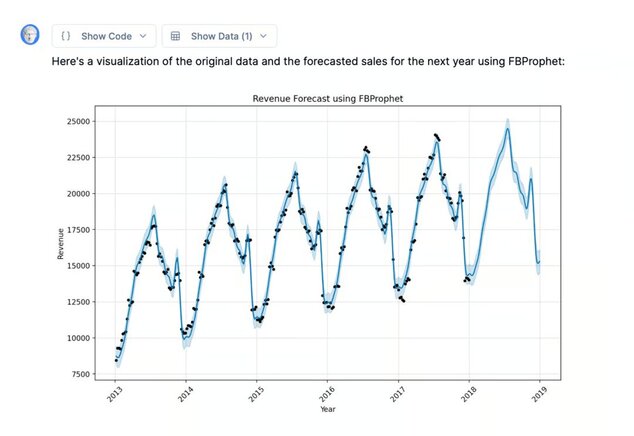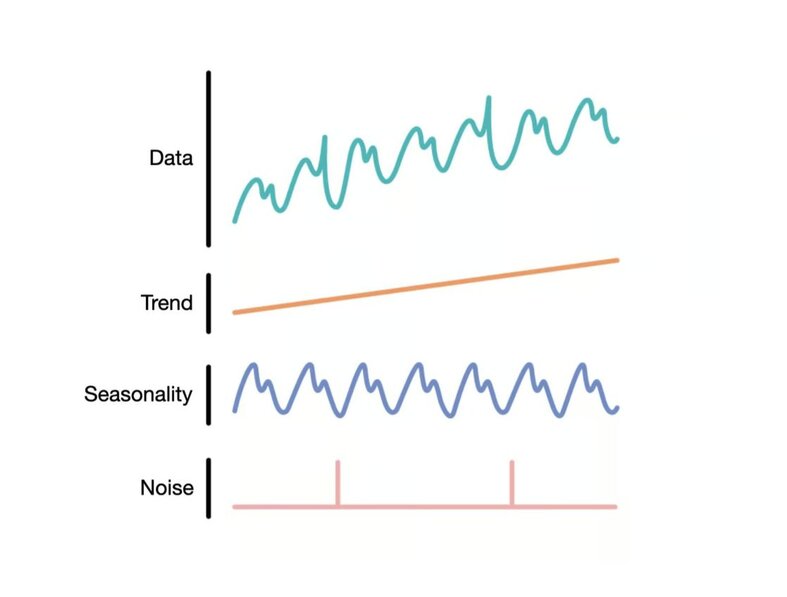March 10th, 2024
What is FBProphet?
By Zach Fickenworth · 6 min read

Overview
In the vast world of time series forecasting, a standout tool has emerged from Facebook’s data science arsenal: Prophet. Developed by Facebook’s Core Data Science team and released in 2017, this algorithm is built to decipher the intricacies of time series data effectively, making it a prime choice for a myriad of applications, from e-commerce sales projections to meteorological predictions.

How Does Prophet Work?
Trend: The general direction your data is heading, like sales increasing over time. In order to recognize the overarching trajectory of your data, Prophet employs a piecewise linear regression to ascertain whether the data is on an upward or downward trajectory.
Seasonality: Regular, cyclical ups and downs in data, like the spike in sales every holiday season. Be it daily, weekly, or monthly, there are often cycles underlying your data. Prophet harnesses the Fourier series to capture these oscillations, accounting for varying seasonal trends.
Noise: Random blips or changes that don’t fit the trend or seasonality, like a promotional event causing a one-time spike. Prophet identifies these random inconsistencies and fluctuations, ensuring they don’t distort the forecast.

When Should Prophet Be Your Go-To?
For Beginners: With its intuitive design, Prophet is friendly to those unfamiliar with time series forecasting. Its parameters are set to be easily understood even if you’re not a statistical modeling veteran.
Mean Shifts in Data: If your data experiences significant disruptions or mean shifts, Prophet is adeptly equipped to tackle these variations, giving you a clear forecast despite the hiccups.
However, Prophet Might Not Always Be Ideal
While Prophet’s ease of use and adaptability are commendable, there are scenarios where it might not be the best choice:
Maximized Predictive Performance: In contexts where even minor enhancements in forecasting precision can translate to substantial business value, classical time series models like ARIMA or exponential smoothing might outdo Prophet in accuracy and be a better choice.
In summation, while numerous methodologies exist for time series forecasting, Prophet is distinguished by its blend of precision, adaptability, and user-friendliness. Whether you’re looking to forecast e-commerce sales, predict website traffic, or get a sense of future stock market movements, Prophet has you covered — easily try it out within Julius today: Julius AI.
Frequently Asked Questions (FAQs)
Prophet decomposes time series data into three main components: trend, seasonality, and noise. By leveraging piecewise linear regression for trend, Fourier series for seasonality, and a Bayesian framework for uncertainty, it provides accurate and adaptable forecasts that are intuitive to interpret and adjust.
